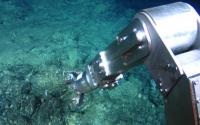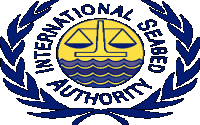Recent News

Germany has called for a pause in the controversial deep-sea mining industry, saying not enough is known about the likely impacts of digging up the ocean floor for metals.
[ More ]
A growing number of countries are backing calls for a moratorium on mining the oceans’ floor but the UN body responsible is pushing to greenlight the industry in 2023.
[ More ]
Mining companies are planning to profit from the new industry, but environmental campaigners warn of disastrous consequences.
[ More ]
Commercial deep seabed mining could begin as early as 2024 but the ecological harm would be vast and scientists can't say yet whether it would be permanent or excessive.
[ More ]
The UN-affiliated organisation that oversees deep-sea mining, a controversial new industry, has been accused of failings of transparency after an independent body responsible for reporting on negotiations was kicked out.
[ More ]
As climate change opens up the Arctic for transit and exploration, Russia has increasingly militarized the region. The U.S. is preparing a more aggressive presence of its own.
[ More ]
After a lengthy pandemic pause, the International Seabed Authority is set to debate mining regulations but the U.S. is sidelined in the discussions as a non-party to UNCLOS.
[ More ]The world has a “once in a lifetime” chance to protect the high seas from exploitation, warned scientists and environmentalists, as negotiators meet at the UN headquarters in New York this week to hammer out a new treaty on the oceans.
[ More ]
Deep-sea mining in international waters is currently illegal, and environmental organizations, scientists, and many governments want to keep it that way. They argue that the practice could irreversibly harm one of the planet’s remotest ecosystems, one of the few places on Earth that has largely escaped human disruption.
[ More ]
As the deep ocean faces growing peril from climate change, seabed mining and other threats, scientists have discovered that seafloor sediments are home to vast populations of previously unknown organisms that may play a crucial role in carbon sequestration and marine food webs. The finding will only further complicate the debate over the tradeoffs from deep seabed mining for critical metals needed for a transition to green energy.
[ More ]